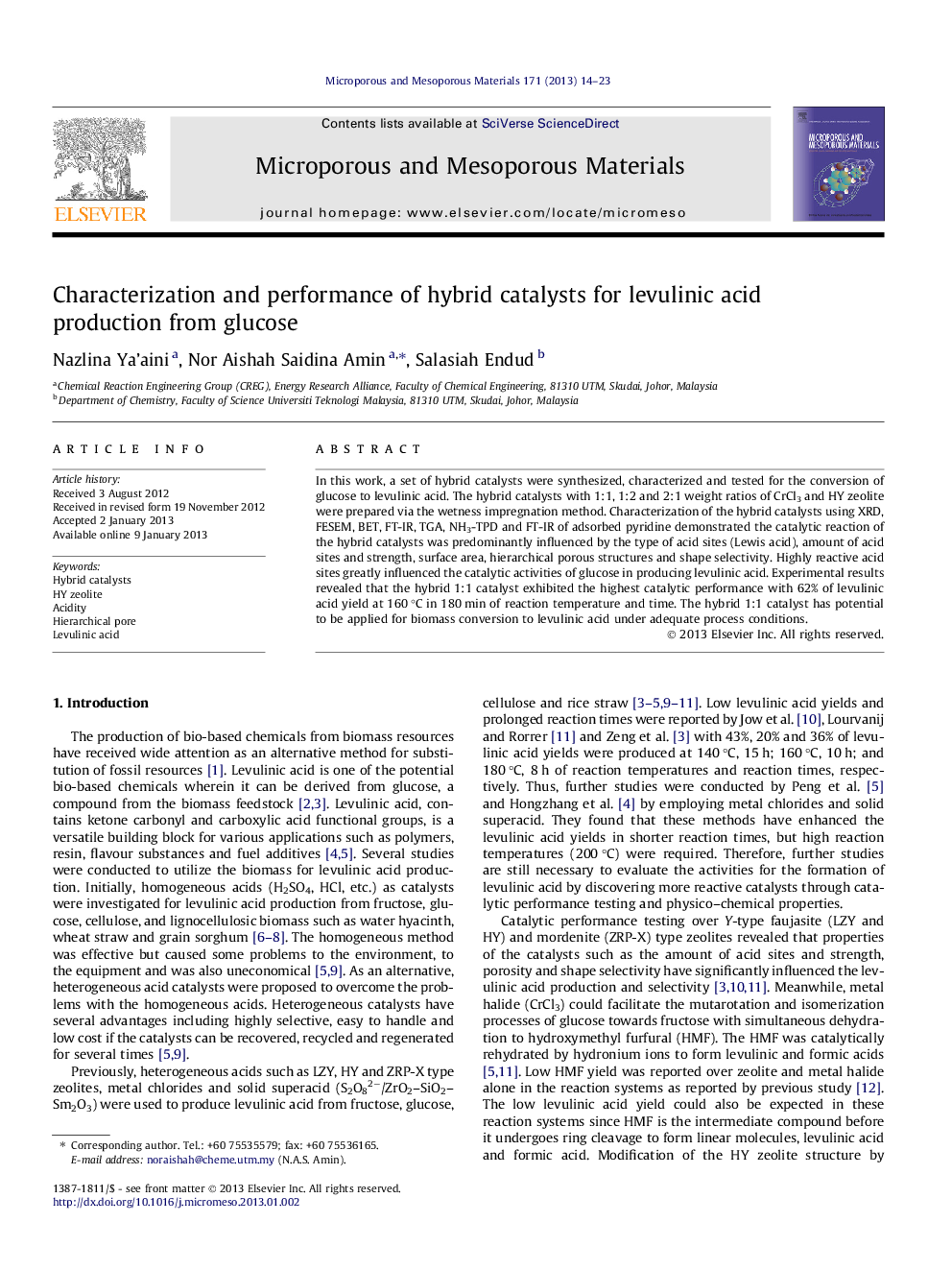| Article ID | Journal | Published Year | Pages | File Type |
|---|---|---|---|---|
| 73801 | Microporous and Mesoporous Materials | 2013 | 10 Pages |
In this work, a set of hybrid catalysts were synthesized, characterized and tested for the conversion of glucose to levulinic acid. The hybrid catalysts with 1:1, 1:2 and 2:1 weight ratios of CrCl3 and HY zeolite were prepared via the wetness impregnation method. Characterization of the hybrid catalysts using XRD, FESEM, BET, FT-IR, TGA, NH3-TPD and FT-IR of adsorbed pyridine demonstrated the catalytic reaction of the hybrid catalysts was predominantly influenced by the type of acid sites (Lewis acid), amount of acid sites and strength, surface area, hierarchical porous structures and shape selectivity. Highly reactive acid sites greatly influenced the catalytic activities of glucose in producing levulinic acid. Experimental results revealed that the hybrid 1:1 catalyst exhibited the highest catalytic performance with 62% of levulinic acid yield at 160 °C in 180 min of reaction temperature and time. The hybrid 1:1 catalyst has potential to be applied for biomass conversion to levulinic acid under adequate process conditions.
Graphical abstractFigure optionsDownload full-size imageDownload as PowerPoint slideHighlights► New hybrid catalysts were synthesized using wetness impregnation method. ► Hybrid catalysts comprising of CrCl3 and HY zeolite with different weight ratios. ► The physico-chemical properties of hybrid catalysts were investigated. ► Characterizations using XRD, FESEM, BET, FT-IR, TGA, NH3-TPD and FT-IR pyridine. ► The catalysts performances were tested for glucose conversion to levulinic acid.
